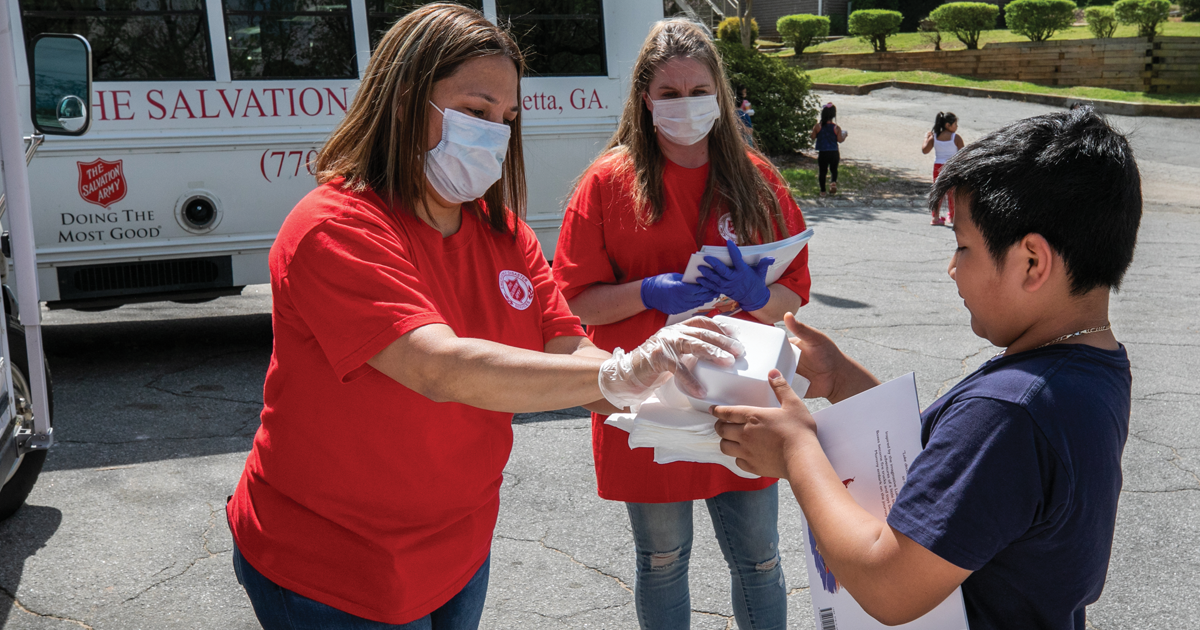Pray, Wait, Watch…
Three Holy Habits for a Time of Uncertainty
The psalms have taken on new meaning during the COVID-19 crisis. As the world reacts to the global pandemic, these ancient song-prayers suddenly seem very timely. Even if you’ve never prayed before, the psalms seem somehow familiar. They express deep human emotions in timeless ways. They are comforting and challenging, and help us express things we can’t put into words. If you don’t know what to pray, you can simply let them be the words of your prayer.
Psalm 130 has been particularly helpful to me during this crisis. It highlights three specific actions to take when it feels like the bottom has fallen out of life: praying, waiting and watching. When the news and the charts and the projections are too fast to process, these three disciplines invite us to breathe, rest and find peace even in the midst of chaos.
Pray
In prayer, we ask God to listen and to pay attention to us. We ask for help, we ask for mercy, we ask for forgiveness. We ask Him to act on our behalf because we are confident. We know He will answer.
Prayer and scripture are the Christian’s go-to resources for life, especially when life takes unexpected turns. When our regular rhythms and routines collapse, we need the structure and support of God’s Word more than ever. There are as many ways to pray as there are people in the world, but one that combines reading and prayer is lectio divina, an ancient way of slowly savoring scripture until it turns into prayer. The psalms are perfect for this kind of reading.
You can find a lot of information about lectio online, and there are even apps that you can download, but the basic idea is to read or hear a short passage of scripture and then turn it over in your mind long enough for a specific word or phrase to get your attention. Read the passage again and then again, letting the words soak in, always listening for specific words that seem to jump out at you. Then it’s just a matter of letting the scripture lead you into prayer. If something seemed really important to you, let that be the subject of your prayer. If nothing really lit up, then thank God for His word and ask Him to keep speaking as you go through your day.
Wait
COVID-19 has forced all of us—people of all faiths or not—into a prolonged waiting time. We wait for the latest news, for the newest projection and especially for the all-clear signal. We are waiting for life to go back to normal, whatever we mean by that.
The scriptural idea of waiting is a little different. When the psalmist says he is waiting for God, he is not just passing time until God shows up and fixes everything. When we wait on God, we are looking for Him with hope and expectation. It’s like waiting for a loved one at the airport baggage claim. You watch the arrival screen for confirmation that they’re about to land. You stand on tiptoe, eagerly looking for the first sight of them. That kind of expectant anticipation is what the psalmist had in mind when he wrote about waiting for God.
Waiting is itself a spiritual discipline. We look for God in the present moment because that is where He always is. In a crisis situation, it’s tempting to either retreat to the past or try to jump ahead to the future, but waiting is the discipline of being faithful in the present. It often means believing that God is working in ways we can’t see or don’t understand. In this time of uncertainty, doubt and even fear, this is a difficult—and necessary—discipline.
Watch
Watching has to do with remembering and anticipating. In this psalm, the writer says he is watching until morning, which conveys the idea of a long night passing. During the long night, the psalmist is both remembering the things God has done in the past and anticipating what He will do when the morning finally comes.
As we wait for the coronavirus crisis to be over, some people are finding that the discipline of journaling, especially the habit of keeping a gratitude journal, is helpful. As we face new challenges all the time, it can become difficult to remember the good gifts God sends our way every day.
One simple counterbalance is by writing them down. It doesn’t have to be fancy. You don’t even need to write in full sentences. Just take a few minutes at the end of the day to write down one or two blessings or good things that happened during the day. It’s a cumulative habit. As you develop the habit of writing these things down at the end of the day, you will also start to look for them during the day.
We are living in difficult days, but God is with us. These three habits will help you recognize and respond to Him. They will help you turn your whole life into a prayer as you wait and watch for His deliverance.







